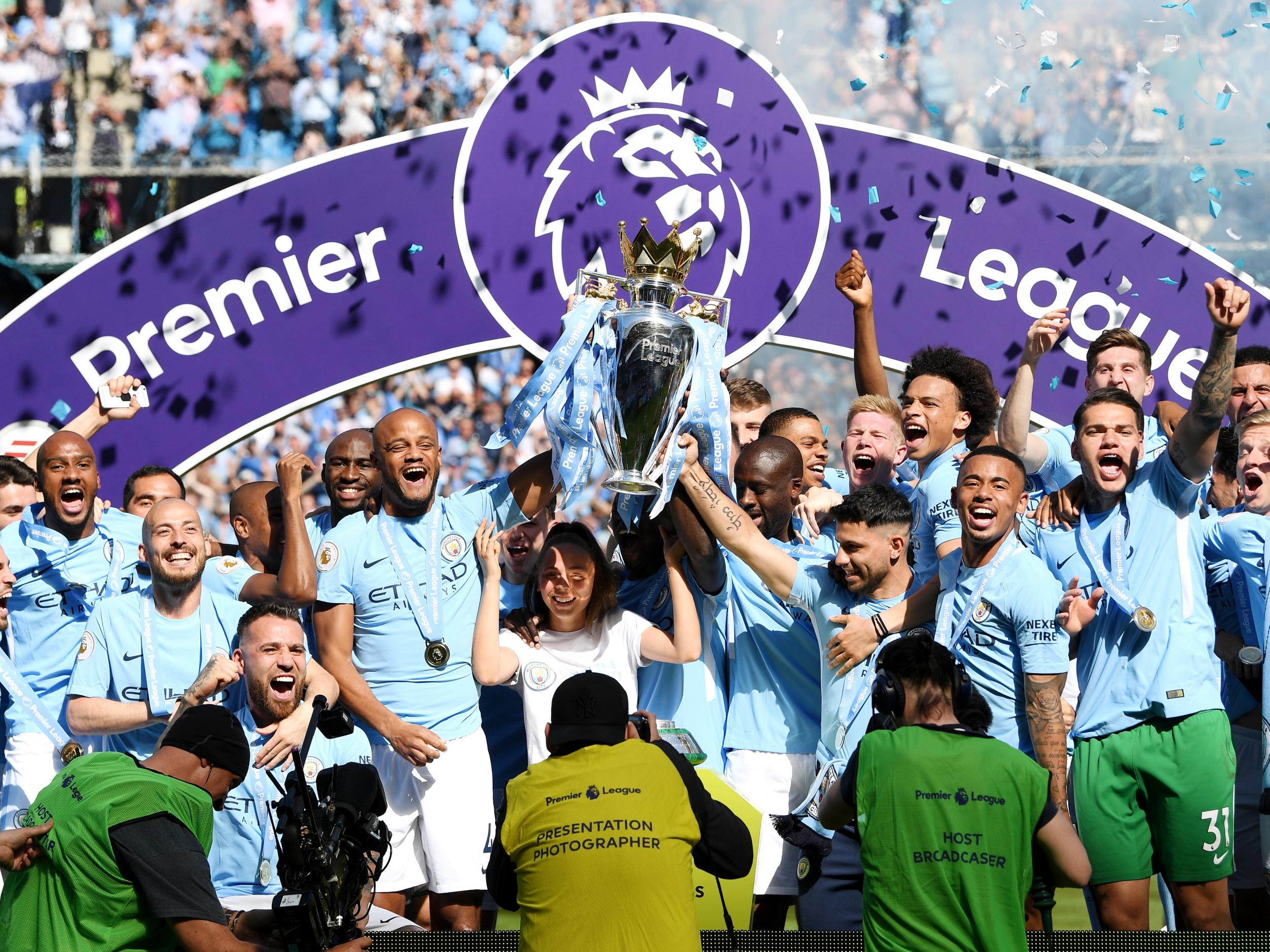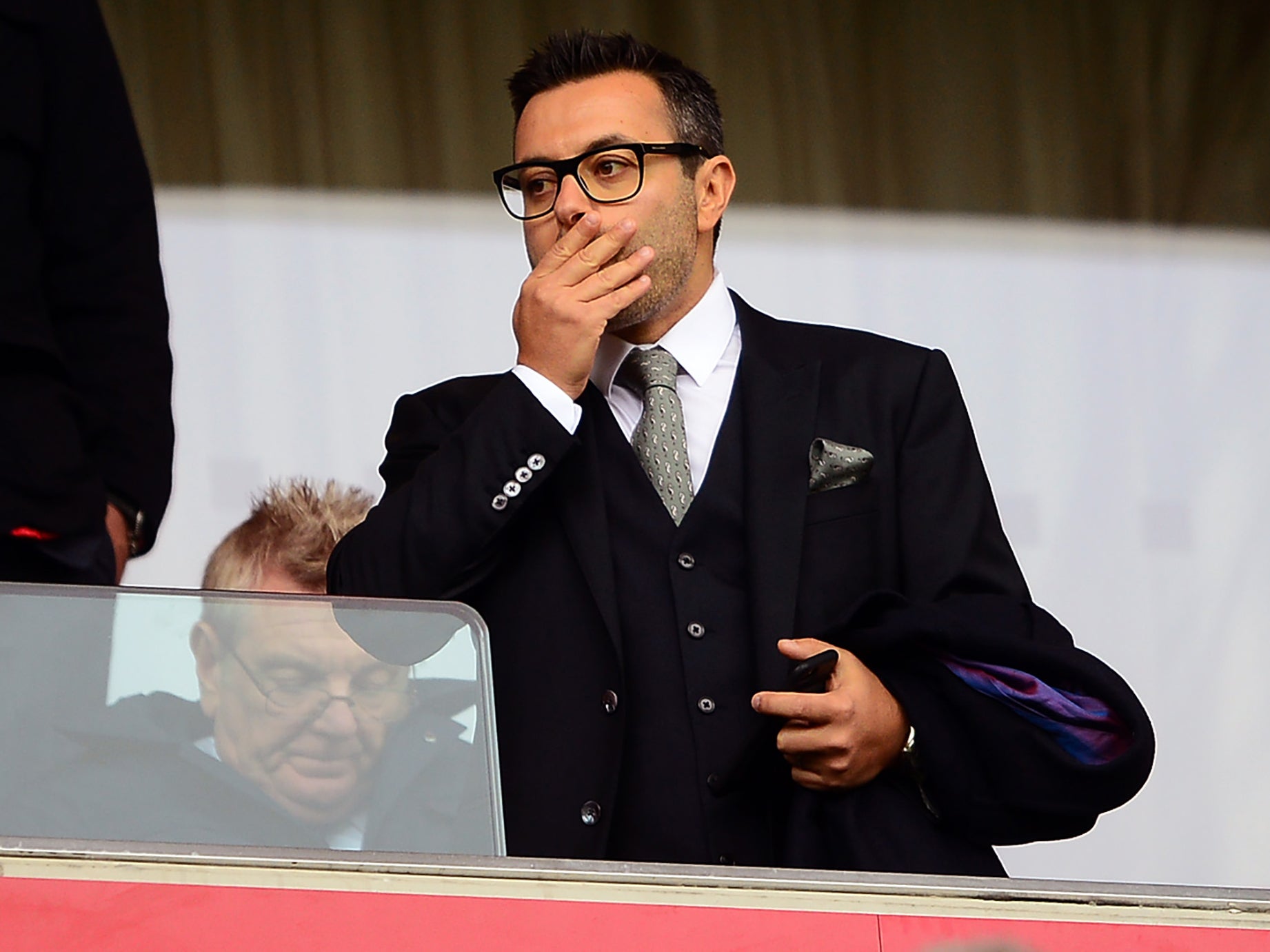Premier League founder explains why the ‘unbridgeable’ Championship income gap should never have existed
Rick Parry tells The Independent that things would be different if the Football League clubs made a decision a generation ago

Plenty of eyes would have risen skywards in boardrooms across the Championship, League One and League Two when Leeds United owner, Andrea Radrizzani, re-opened the debate over the creation of a Premier League 2 last week.
They would, quite rightly, reason that they have more important things to worry about, like scrabbling around trying to ensure their own financial future, rather than aiming to close an already unbridgeable monetary gap between those at the top and those left living off scraps.
As Rick Parry, the first chief executive of the Premier League back in 1992, tells The Independent, it wasn’t supposed to be like this.
And perhaps wouldn’t have been if Football League clubs had taken a different decision a generation ago.
“A lot of people forget that when we did the second Premier League deal in ’96, we thought we were going to get a decent increase,” says Parry.
“In ’96 when we realised that the gap was going to be even bigger than it was in ’92, we went to the Football League clubs and offered to do a combined TV deal. We would take over the negotiation of their rights and sell them together with the Premier League.
“We also said we would give them a minimum income guarantee, saying that their share of the pot would be a minimum 20% of the total.
“It was really weird. We did a presentation to all of the Football League clubs and 71 out of 72 said ‘yes, that seems like a good idea’. The Football League board then ignored it and decided to go their own way.

“If they had taken that on board then clubs would have been a lot happier today – and that gap would still have been big but it would have been an awful lot more manageable than it is today.”
The Football League would get into bed with ITV Digital a short time later, with the company paying an eye-watering £315m to broadcast matches from the Championship, League One, League Two and League Cup fixtures.
Eye-brows were raised immediately and after the company went into administration in March 2002, Sky came along and swept up the mess, paying £95m to screen Football League fare for the next four years.
It was a financial blow that the clubs below the Premier League – particularly those who have never been fortunate enough to enjoy the windfall of playing in it – have never recovered from.
But the formation of a Premier League 2 would, Parry argues, do little to redress the balance.
“I remember a discussion at least a couple of times when I was at Liverpool,” says Parry. “The late Phil Gartside (at Bolton) was always an enthusiast. David Sheepshanks was an enthusiast. At one time the late Ron Noades at Crystal Palace was also in favour of it too.
“But arguably it would make the Football League significantly less attractive. There’s not going to be any more money and I think it’s a misguided point, really. The real issue, and it is a huge issue, is the gap between the Premier League and the Championship.
“If you look at the total income of all the Championship clubs, there are two things that are quite disturbing. One is that it now amounts to less than 15% of all the Premier League club’s revenues, which is a huge gap. That’s almost unbridgeable.

“Also, about 30% of the total income of every Championship club is made up of the parachute payments, which are a distortion, I think an unfair distortion, in itself. Those are the real issues.
“The forming of a Premier League 2 isn’t in itself going to solve that. That can be solved without a Premier League 2 by agreeing a greater distribution.”
Radrizzani's comments last week have ensured that Leeds United – champions of England in the final season before the inception of the Premier League – are now seen as the cheerleaders of change.
Parry, though, argues that the vast majority of the Premier League’s current membership should have one eye cast firmly on the future, in the knowledge that their membership of world football’s most exclusive club may only ever come on a temporary basis.
“You have to remember that the Premier League is no more than a collection of clubs at a particular time,” he says.
“As many as 14 (clubs) are thinking, it could be us. It’s not only the Leeds’ of this world who are concerned about this gap, it really ought to be the Hudderfield’s, even the Newcastle’s. They know what it feels like to drop down (to the Championship).
“In many ways the game is in good health. The Premier League is making twice as much money as all of the other major leagues. And yet our big clubs are still unhappy with their revenue share. You almost think, well, what will ever actually make people happy? How much do you want?”
Parity is a pipe dream. A slight redressing of the balance, though, would be a good place to start.
Join our commenting forum
Join thought-provoking conversations, follow other Independent readers and see their replies
Comments